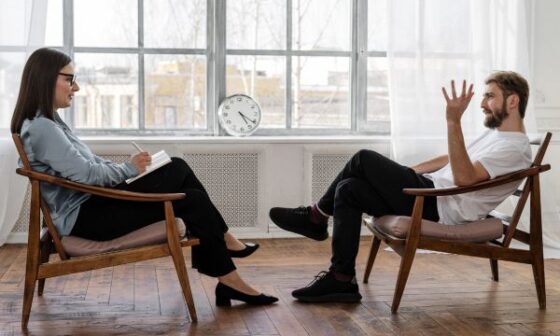Marriage counseling, also known as couples therapy or relationship counseling, is a professional service designed to help couples navigate challenges and improve their relationship. It involves meeting with a trained therapist who facilitates open communication, guides the couple in resolving conflicts, and supports their journey towards a healthier and more fulfilling partnership.
If you are considering marriage counseling, it’s important to have a clear understanding of what to expect, as it can play a crucial role in the success of the process. In this article, we will explore the pros and cons of marriage counseling, shedding light on its potential benefits as well as the challenges couples may encounter along the way.
Marriage Counseling What To Expect
Marriage counseling, also known as couples therapy or relationship counseling, is a process where a trained therapist or counselor helps couples address and work through various issues in their relationship. If you and your partner are considering marriage counseling, here’s what you can generally expect from the process:
1. Initial Assessment
Typically, the first session involves an initial assessment. The therapist will ask both partners to share their perspectives on the issues in the relationship, their goals for therapy, and their personal histories. This helps the therapist understand the dynamics of the relationship and plan for future sessions.
2. Open Communication
Marriage counseling provides a safe and structured environment for open and honest communication. The therapist will facilitate discussions to help both partners express their thoughts and feelings without judgment or criticism.
3. Problem Identification
The therapist will work with you to identify the specific problems or challenges in your relationship. These could include communication issues, trust issues, conflicts over finances, parenting disagreements, or intimacy issues.
4. Goal Setting
You and your partner, along with the therapist, will set specific goals for therapy. These goals will guide the counseling process and provide a clear focus for your sessions.
5. Skill Development
Marriage counselors often teach couples effective communication skills, conflict resolution techniques, and strategies for improving intimacy and emotional connection. You may learn new ways to express your needs, listen actively, and understand each other better.
6. Homework and Exercises
Therapists may assign homework assignments or exercises to practice between sessions. These assignments are designed to reinforce the skills and insights gained during therapy.
7. Emotional Processing
Marriage counseling may involve delving into deeper emotional issues or past traumas that may be affecting the relationship. The therapist will guide you through these discussions to promote understanding and healing.
8. Conflict Resolution
A significant part of marriage counseling is helping couples learn how to manage and resolve conflicts constructively. You’ll work on finding mutually agreeable solutions to your problems.
9. Improved Communication
Marriage counseling often focuses on improving communication patterns. This includes learning how to listen actively, express feelings and needs clearly, and avoid destructive communication habits.
10. Strengthening the Relationship
The ultimate goal of marriage counseling is to strengthen the relationship and enhance the bond between partners. This may involve rebuilding trust, increasing emotional intimacy, and fostering a sense of teamwork.
11. Duration and Frequency
The duration of marriage counseling can vary widely depending on the nature and complexity of the issues. Some couples may benefit from just a few sessions, while others may require several months or longer. Frequency of sessions is typically once a week, but this can also vary.
12. Confidentiality
It’s important to know that what is discussed in marriage counseling is confidential, and therapists are bound by ethical guidelines to maintain confidentiality unless there is a risk of harm to oneself or others.
Remember that the effectiveness of marriage counseling depends on various factors, including the willingness of both partners to actively participate and make changes. It can be a valuable resource for couples looking to improve their relationship, but success often requires commitment, patience, and effort from both individuals involved.
Pros of Marriage Counseling
Improved Communication
One of the primary benefits of marriage counseling is the opportunity to enhance communication between partners. Effective communication is the cornerstone of a healthy relationship, and through counseling, couples can learn valuable skills to express their thoughts, feelings, and needs more clearly and respectfully. Therapists often teach techniques such as active listening, non-verbal cues interpretation, and using “I” statements to promote understanding and empathy. By improving communication, couples can address issues more effectively and develop a stronger connection.
Conflict Resolution
Conflicts are inevitable in any relationship, but learning how to resolve them in a constructive manner is crucial for marital harmony. Marriage counseling provides a safe space for couples to explore their conflicts, identify underlying issues, and work towards finding mutually satisfying solutions. Therapists can help couples gain insight into their patterns of communication and behavior, facilitating the development of healthier problem-solving strategies. Through counseling, couples can learn to navigate disagreements with respect and empathy, fostering a more harmonious relationship.
Strengthening Emotional Connection
Over time, relationships can experience a decline in emotional connection due to various factors such as work stress, parenting responsibilities, or unresolved conflicts. Marriage counseling offers couples the opportunity to rebuild trust, intimacy, and emotional bonds. Therapists assist couples in exploring the root causes of emotional distance and guide them in reconnecting on an emotional level. By addressing past wounds, rekindling love and affection, and rediscovering shared interests, marriage counseling can reignite the flame of love and strengthen the emotional foundation of the relationship.
Cons of Marriage Counseling
Financial Costs
One of the potential drawbacks of marriage counseling is the financial cost involved. Therapy sessions, particularly with experienced and licensed professionals, can be expensive. Depending on the location, the average cost of a counseling session can range from $100 to $250 per hour. Additionally, the counseling process may require multiple sessions over a period of several months, resulting in a significant financial commitment. It’s important for couples to consider their budget and weigh the financial costs against the potential benefits of counseling.
Time Commitment
Marriage counseling requires a significant time commitment from both partners. Regular sessions, typically lasting around 60 minutes, are essential for progress and continuity in the therapeutic process. Couples need to allocate time for attending sessions, which may clash with work schedules, childcare responsibilities, or other commitments. It’s essential to discuss and plan for the necessary time commitment before embarking on marriage counseling to ensure both partners can actively participate in the process.
Emotional Challenges
Engaging in marriage counseling can bring forth intense emotions and challenges. Couples may need to address painful issues, confront deep-seated fears, or revisit past traumas. It is common for individuals to experience discomfort, sadness, or anger during therapy sessions. Emotional challenges can arise when couples are confronted with the realities of their relationship, including patterns of behavior that have contributed to conflicts. It is crucial for couples to be prepared for emotional ups and downs and to have the resilience to work through difficult moments.
The Role of the Counselor
In marriage counseling, the therapist plays a vital role in guiding couples towards positive change. They act as neutral third parties, offering a fresh perspective on the relationship dynamics. A skilled counselor provides a safe and non-judgmental environment where both partners can express themselves freely. They utilize their expertise in psychology and relationship dynamics to provide insights, tools, and strategies for overcoming challenges. The counselor helps couples set goals and objectives, monitors progress, and adjusts the counseling approach as needed to ensure the best possible outcomes.
How to Make the Most of Marriage Counseling
To make the most of marriage counseling, couples can take proactive steps to enhance their experience and maximize the benefits gained from the therapeutic process. Firstly, a commitment to change and personal growth is essential. Recognizing areas for improvement and being open to feedback and suggestions from the therapist are crucial for progress. Active participation is equally important, both during counseling sessions and in between. Couples can engage in assigned exercises and homework, practice new communication skills, and apply what they have learned outside of therapy to strengthen their relationship.
Conclusion
Marriage counseling can be a transformative experience for couples seeking to improve their relationship. By addressing communication issues, learning conflict resolution skills, and strengthening emotional connection, couples can work towards a healthier and more fulfilling partnership. While there may be financial costs, time commitments, and emotional challenges associated with marriage counseling, the potential benefits far outweigh the drawbacks. With the guidance of a skilled therapist and a commitment to change, couples can embark on a journey of growth, understanding, and long-term relationship satisfaction.
FAQs
1. Is marriage counseling only for couples on the brink of divorce?
Marriage counseling can benefit couples at various stages of their relationship, from those facing significant challenges to those seeking to enhance their bond. It is not limited to couples on the brink of divorce but can be helpful for any couple looking to improve their relationship.
2. How long does marriage counseling typically last? The duration of marriage counseling varies depending on the unique circumstances of each couple. It can range from a few weeks to several months or longer, depending on the complexity of the issues being addressed and the progress made.
3. What happens if one partner is reluctant to attend marriage counseling?
It is not uncommon for one partner to be initially hesitant or resistant to attend marriage counseling. In such cases, open and honest communication is key. Expressing the benefits of counseling, addressing concerns, and seeking professional advice can help encourage reluctant partners to give it a try.
4. Can marriage counseling guarantee that a relationship will be saved?
Marriage counseling does not offer guarantees, as the outcome ultimately depends on the commitment and efforts of both partners. However, it provides a supportive and structured environment for couples to work on their relationship and increase the likelihood of positive change.
5. What if we’ve tried marriage counseling before and it didn’t work?
Every counseling experience is unique, and what works for one couple may not work for another. If a previous attempt at marriage counseling did not yield desired results, it may be worth considering trying a different therapist or approach to address the underlying issues more effectively.







